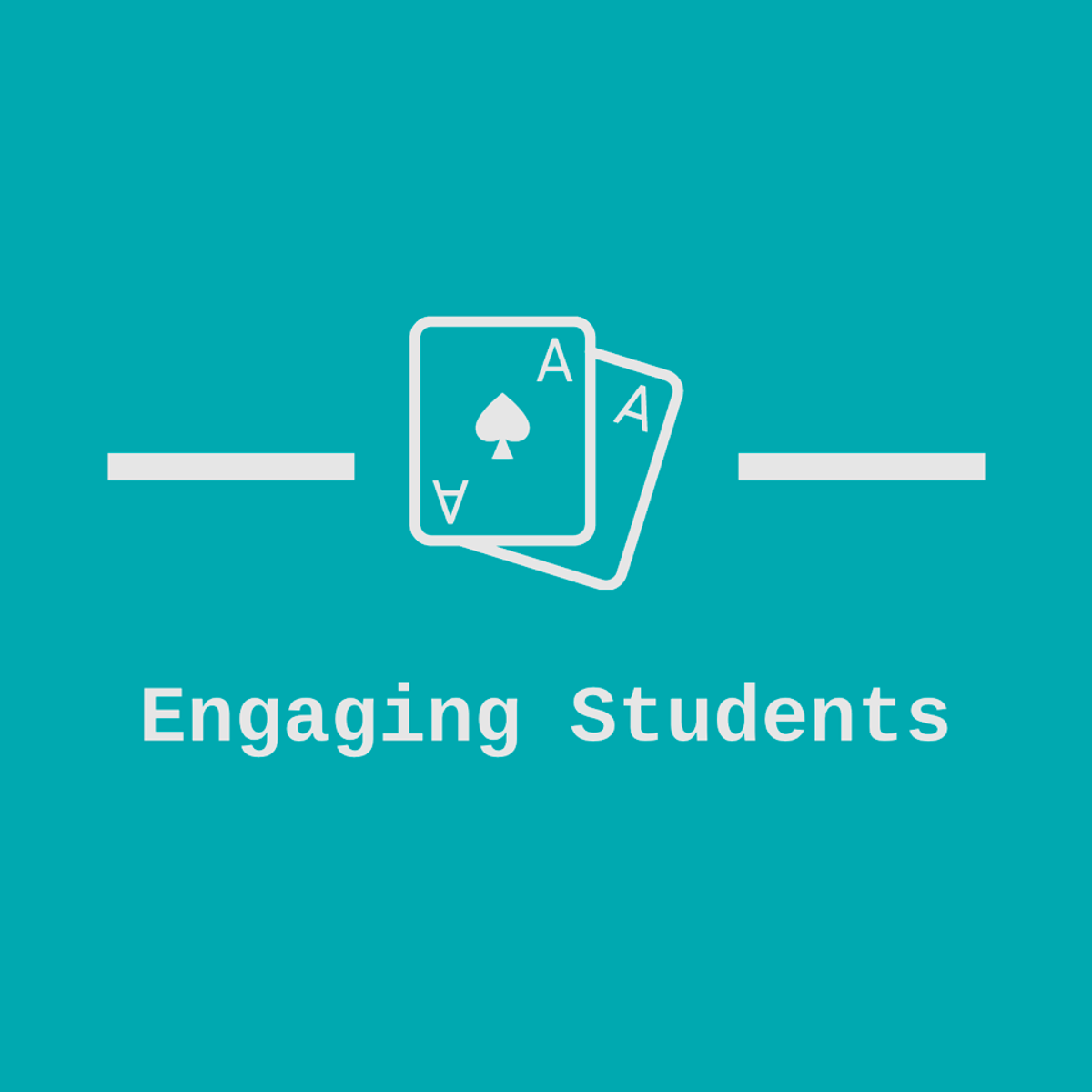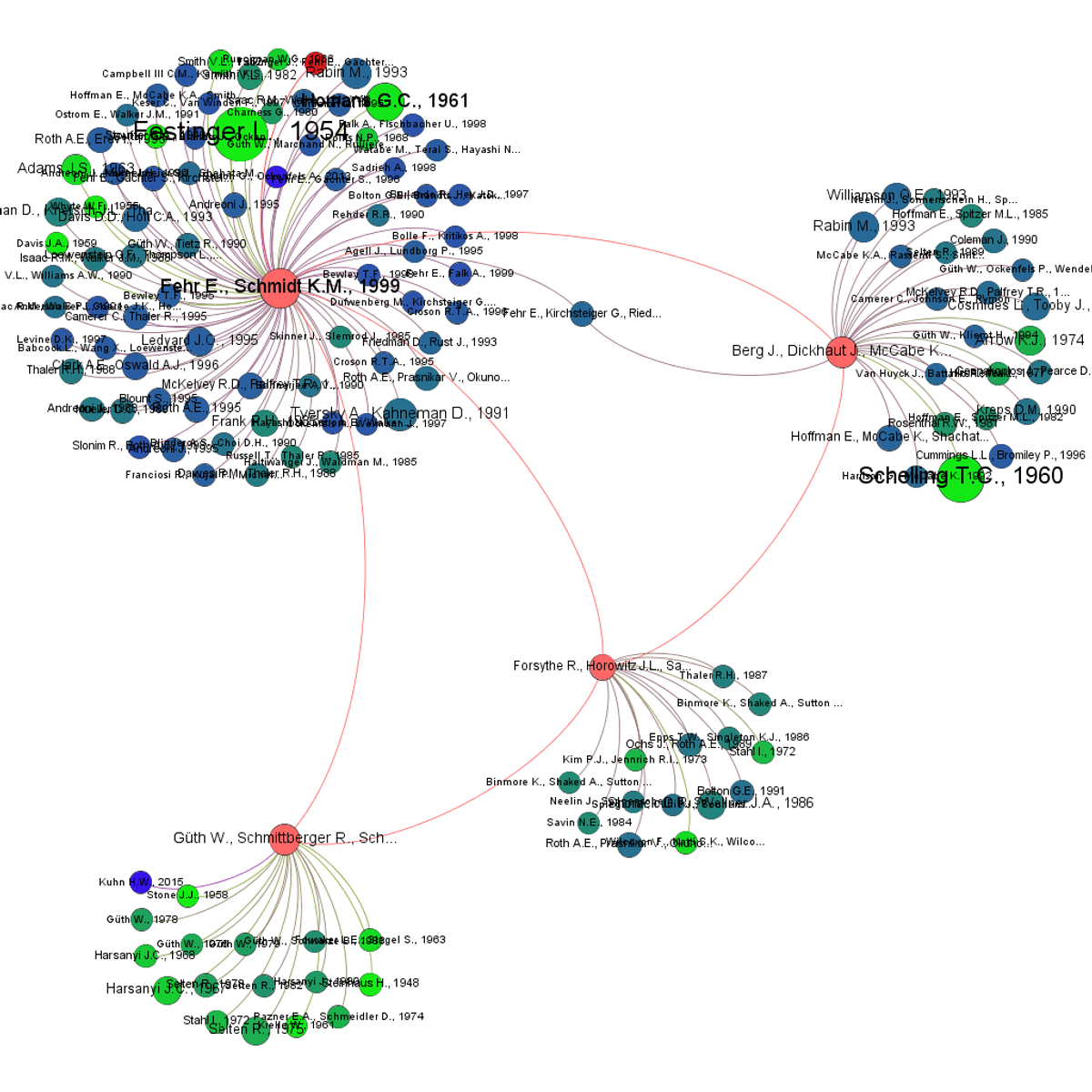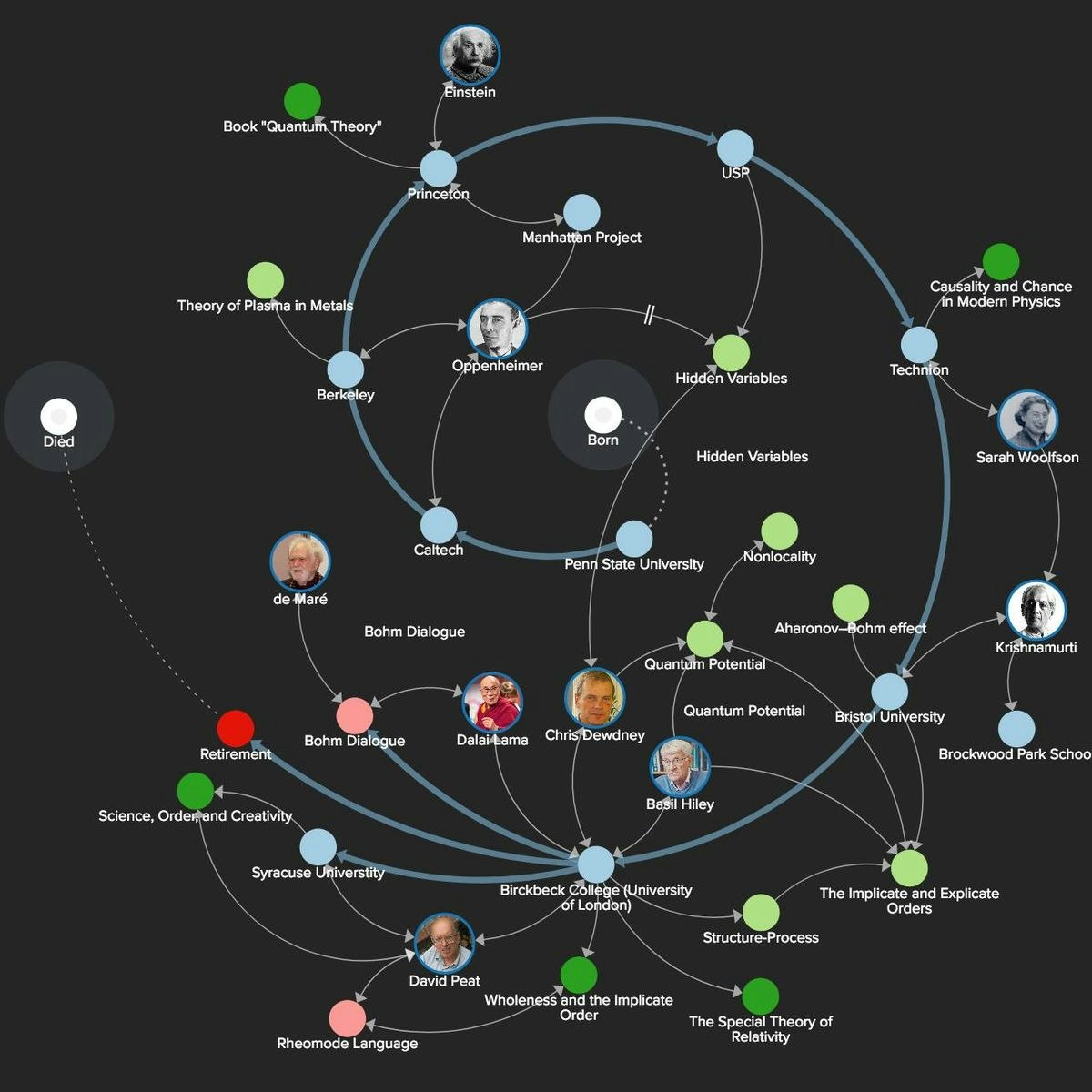Back to Courses









Social Sciences Courses - Page 6
Showing results 51-60 of 672

Love as a Force for Social Justice
The objectives of this course are:
-To introduce participants to different concepts of love, to empower them to be conscious of the power of love and the possibility of practicing it in everyday life, and to highlight in particular the idea of love as a force for social justice.
-To communicate a sense of personal strength and empowerment by actively learning from each other and beginning to define how participants can apply their learning in service to society.
This course will explore the concept of agape love (compassion/kindness) as a force for social justice and action and as the inspiration for service and the application of knowledge to positive social change. Biological, psychological, religious, and social perspectives of love will be discussed, drawing on the expertise of people from a variety of disciplines.
During the six-week course, the following topics will be raised and discussed: kinds of love/defining love; non-violent communication; love and the biology of the brain; love as a basic concept of religious and ethical beliefs (e.g., Judaism, Christianity, Islam, Buddhism, Gandhian); love applied in action, and poetic expressions of love as a social force. This curriculum aims to foster a sense of the importance of love as a key phenomenon in creating community, connection, and functional societies among humans.
Course materials will draw from a variety of sources. One of the goals of the class is to provide participants with some knowledge of the literature of love, and readings for the course are listed in the outline of the course on the pages that follow.

Improving Math Engagement with Prodigy
By the end of this project, you will have discovered an excellent math website that has been proven to increase student engagement and even improve their math skills. Prodigy is a free math website where students enjoy learning math as they explore and work through a fantasy world complete with epic questions and in-game rewards. While students are enjoying the game, teachers are gathering valuable data that shows what math skills their students already have and where they need to improve. As a teacher, you can assign specific questions and content to your students so that the skills they practice while playing the game are aligned to the skills you are focusing on in class. Watch student engagement and skill increase in leaps and bounds as you use Prodigy in your classroom or at home.
*You will need a free Prodigy account for this project.

Service Transformed: Lessons in U.S. Veteran Centered Care
Improving health care for veterans has become a matter of national attention and has gained increasing attention from the medical community. With the current surge of veterans reintegrating into civilian society it is critical to improve the training of the next cadre of providers who will provide care for our veterans. It is widely known that veterans receive care in all aspects of the health system, thus providers in veteran focused care facilities, military health serves and civilian locals must be aware of the unique needs of veterans. It is perhaps even more important to educate civilian providers who may be unfamiliar with the unique physical, mental and emotional needs related to military service.
Course Audience
- all health professions learners, example:
- medical students, resident physicians, dental students,
- nursing students, advanced practice nurses,
- social work, pharmacy student as graduate level learners
- as well as any and all health professionals interested in veteran-centered care
What You Will Learn:
This course will provide learners the opportunity to engage with material to facilitate their understanding of the origins of Academic Medical Centers and Veterans Administration affiliations, recognize and manage the influence of bias, class, and power on the clinical encounter and self-reflect on their biases that particularly affect U.S. military veterans. This course also features several video clips from the acclaimed documentary, Where Soldiers Come From, directed by Heather Courtney.
The views expressed in this course are those of the authors and do not necessarily reflect the position or the policy of the Department of Veterans Affairs or the U.S. government.

Principles of Sustainable Finance
Finance is widely seen as an obstacle to a better world. Principles of Sustainable Finance explains how the financial sector can be mobilized to counter this. Using finance as a means to achieve social goals we can divert the planet and its economy from its current path to a world that is sustainable for all.
Throughout this course, you will learn about the UN Sustainable Development Goals, how social and environmental factors should not be regarded as externalities, you will learn more about sustainable banking and asset management, about effective engagement, sustainable scenario analysis and long-term value creation.
At the end of this course you will understand how sustainable finance can be used as a tool to steer the sustainability transition.

Citation Analysis for Bibliometric Study
In this 2 hour long project, you will learn to search and extract relevant research articles and their linked references efficiently from a journal database to conduct a bibliometric literature review. Then with these extracted data, you will learn to create a citation network. The visualization tool Gephi will be used in this project for citation network analysis. You will also learn, how to modify the network to present more information visually about the extracted citation data.
Note: This course works best for learners who are based in the North America region. We’re currently working on providing the same experience in other regions.

Politics and Ethics of Data Analytics in the Public Sector
Deepen your understanding of the power and politics of data in the public sector, including how values — in addition to data and evidence — are always part of public sector decision-making. In this course, you will explore common ethical challenges associated with data, data analytics, and randomized controlled trials in the public sector. You will also navigate and understand the ethical issues related to data systems and data analysis by understanding frameworks, codes of ethics, and professional guidelines. Using two technical case studies, you will understand common ethical issues, including participation bias in populations and how slicing analysis is used to identify bias in predictive machine learning models. This course also serves as a capstone experience for the Data Analytics in the Public Sector with R Specialization, where you will conduct an applied policy options analysis using authentic data from a real-world case study. In this capstone exercise, you will review data as part of policy options analysis, create a visualization of the results, and make a recommendation.
All coursework is completed in RStudio in Coursera without the need to install additional software.
This is the fourth and final course within the Data Analytics in the Public Sector with R Specialization. The series is ideal for current or early-career professionals working in the public sector looking to gain skills in analyzing public data effectively. It is also ideal for current data analytics professionals or students looking to enter the public sector.

Storytelling with Kumu
In this project-based course, you will use Kumu to create a relationship map about the life & ideas of physicist and philosopher David Bohm, inspired by the documentary Infinite Potential. By doing so, you will implement advanced functionalities using Kumu's Advanced Editor; and create an interactive presentation based on your map to tell Bohm's story.
This project brings the features and capabilities of Kumu to another realm, where maps that are usually used to represent systems and networks become visual scaffoldings for different ways to tell a story.
Note: This course works best for learners who are based in the North America region. We’re currently working on providing the same experience in other regions.

U101: Understanding College and College Life
College can be confusing and intimidating, but U101 can help. If you were just admitted to college and are nervous about what the next step in life might look like, this course is for you. If you are the parent of a newly admitted college student and curious about what college life is like, this course is also for you.
While your specific college will, no doubt, provide additional orientation material, we wanted to give some basic information about what life might be like at a large American University. You might be years away from college or enrolled right now; either way, U101 has some excellent advice from college students, professors, administrators, and staff.
At the conclusion of the course, learners should:
1. Understand the basics of how colleges and universities operate.
2. Identify and describe what faculty are looking for in college-level academic work.
3. List some effective study strategies.
4. Identify some strategies for exploring and selecting a major.
5. Identify the various types of grants and scholarships available and describe the steps involved in applying to these.
6. Discuss the college life, with special attention to the benefits/limitations of living on or off campus.
7. Identify some strategies for getting the most out of campus life activities (investigating student clubs, fraternities, sororities, etc.).
The course is divided into 4 weeks/8 lessons, which provide an overview of the different aspects of college life. If you were just watching the videos and looking at some of the links, the whole course would take about 4-5 hours.
Week 1
Lesson 1. Welcome to U101!
Lesson 2. Understanding the Nature of College
Week 2
Lesson 3. Succeeding as a Student
Lesson 4. Building Your Major
Week 3
Lesson 5. Financing Your Education
Lesson 6. Living On and Off Campus
Week 4
Lesson 7. Getting Involved in Campus Life
Lesson 8. Conclusion
Please join us for a short exploration of modern American Colleges. Hopefully, this course can help demystify your upcoming college experience.

European Business Law: Doing Business in Europe
This six-week course titled Doing Business in Europe is the second in a series of three exploring some of the main business aspects of European Union law. Besides providing learners with a sound knowledge base of European laws and regulations relevant to establishing and managing a company within the European Union, the course also explores business considerations within a broader perspective by including inputs from leading law practitioners in the field. More specifically, the course discusses strategic and financial considerations within Company law, as well as Labour law issues such as restructuring enterprises, working conditions and handling crises situations. The course also examines other legal areas such as Tax law, Environmental law and Private International law, and how they tie in to doing business in Europe.
At the end of this course, you will have a basic understanding of how to:
· Understand the relevant regulations governing the internal European Union market
· Establish and run a company within the European Union
· Employ staff and recognize workers’ rights and obligations
· Comply with tax regulations and environmental standards
· Set up agreements and resolve cross-border disputes
· Successfully analyse EU case law and draft case reports
About the Series
The Lund series in European Business Law ranges from considering the basic structures and principles of the European Union to focusing on specialized areas of European Union law. The first course, Understanding the Fundamentals, examines the core structures and principles of the European Union. The third and final course, Competing in Europe, goes into depth concerning how to compete on the internal market and protect your brand, product or invention. All three courses can be taken independently or in sequence depending on your needs and preferences.
To keep up to speed on the course series, visit our Facebook page at:
https://www.facebook.com/eblmooc/
Syllabus and Format
Each course consists of a number of modules where one module represents about one week of work. A module includes a number of lectures and readings, and finishes with an assessment – a quiz or a peer graded assignment. The assessments are intended to encourage learning and ensure that you understand the material of the course. Participating in forum discussions is voluntary.
Course I - Understanding the Fundamentals
Module 1. Introduction
Module 2. Legal Method and Sources
Module 3. Constitutional Freedoms and Fundamental principles
Module 4. Enforcement of EU Law and Judicial Review
Module 4. Freedom of Movement
Module 5. The External Dimension
Course II - Doing Business in Europe
Module 1. Making Business Transactions
Module 2. Establishing a Company
Module 3. Employing and Working in Europe
Module 4. Paying Taxes and Complying with Environmental Standards
Module 5. Resolving Cross-border Disputes
Module 6. Case Clinic
Course III - Competing in Europe
Module 1. Trademarks as essential Assets
Module 2. Defending Patents
Module 3. Competition: Illegal Agreements
Module 4. Competition: Abuse of Dominance and Mergers
Module 5. Selling to the State and State Aid
Module 6. Legal Writing and Argumentation
Lund University
Lund University was founded in 1666 and has for a number of years been ranked among the world’s top 100 universities. The University has 47 700 students and 7 500 staff based in Lund, Sweden. Lund University unites tradition with a modern, dynamic, and highly international profile. With eight different faculties and numerous research centers and specialized institutes, Lund is the strongest research university in Sweden and one of Scandinavia's largest institutions for education and research. The university annually attracts a large number of international students and offers a wide range of courses and programmes taught in English.
The Faculty of Law is one of Lund University’s four original faculties, dating back to 1666. It is a modern faculty with an international profile, welcoming both international and Swedish students. Education, research and interaction with the surrounding community are the main focus of the Faculty’s work. The connection between the three is particularly apparent in the programmes and courses offered by the university, including the university’s MOOC course in European Business Law. The students get the chance to engross themselves in traditional legal studies, while interacting with both researchers and professionally active lawyers with qualifications and experience from various areas of law.
The faculty offers three international Masters: two 2-year Master’s programmes in International Human Rights Law and European Business Law, and a 1-year Master’s in European and International Tax Law. Students from around 40 countries take part in the programmes which offer a unique subject specialization within each field, with highly qualified researchers and professional legal practitioners engaged in the teaching.
The Master’s programme in European Business Law provides an in-depth understanding of both the practical and the theoretical aspects of business law within the European Union. The programme provides both general and specific knowledge of the European Union legal framework, which is necessary for students intending to work as legal advisors or business decision-makers. The programme is delivered in English and is open to students with at least a three year degree in Law (Bachelor, LL.B, or equivalent) who want to specialise in European economic and business law.
The MOOC course in European Business Law is a great course to start with for students intending to apply for the Master’s programme in European Business Law. Even though the MOOC course does not grant credits previous knowledge of the subject is considered upon admission to the master’s programme. For more information about the Master’s programme in European Business Law see https://www.law.lu.se/#!meb

The Sustainable Development Goals – A global, transdisciplinary vision for the future
In 2015, the UN launched the 17 Sustainable Development Goals (SDGs). Adopted by 193 member states, the goals represent an important international step in setting humanity on a trajectory towards sustainable development. Within this course, you will get a historical overview of how sustainability has been understood, as well as a thorough introduction to the SDGs – what they are, how progress can be measured, and how the SDGs are relevant for the management of the global systems supporting humanity. The course will examine how various societal actors are responding to and implementing the SDGs.
While all of the SDGs are essential to sustainable development, SDG 13, Climate Action, is usually perceived as the most urgent in terms of the need for a swift implementation on a global scale. Therefore, particular focus is given to this SDG. Through the course, you will gain up-to-date knowledge of the current understanding of human impacts on the Earth at the planetary level. Progress towards establishing global management of human interactions with the climate system within the United Nations Framework Convention on Climate Change (UNFCCC) is also discussed.
The course is designed and taught by Professor Katherine Richardson, who is a member of the 15-person panel appointed by the UN General Secretary in 2016 to write the 2019 Global Sustainable Development Report. In each lecture, Katherine interviews experts who provide insights relevant to the topic at hand.
Popular Internships and Jobs by Categories
Find Jobs & Internships
Browse
© 2024 BoostGrad | All rights reserved